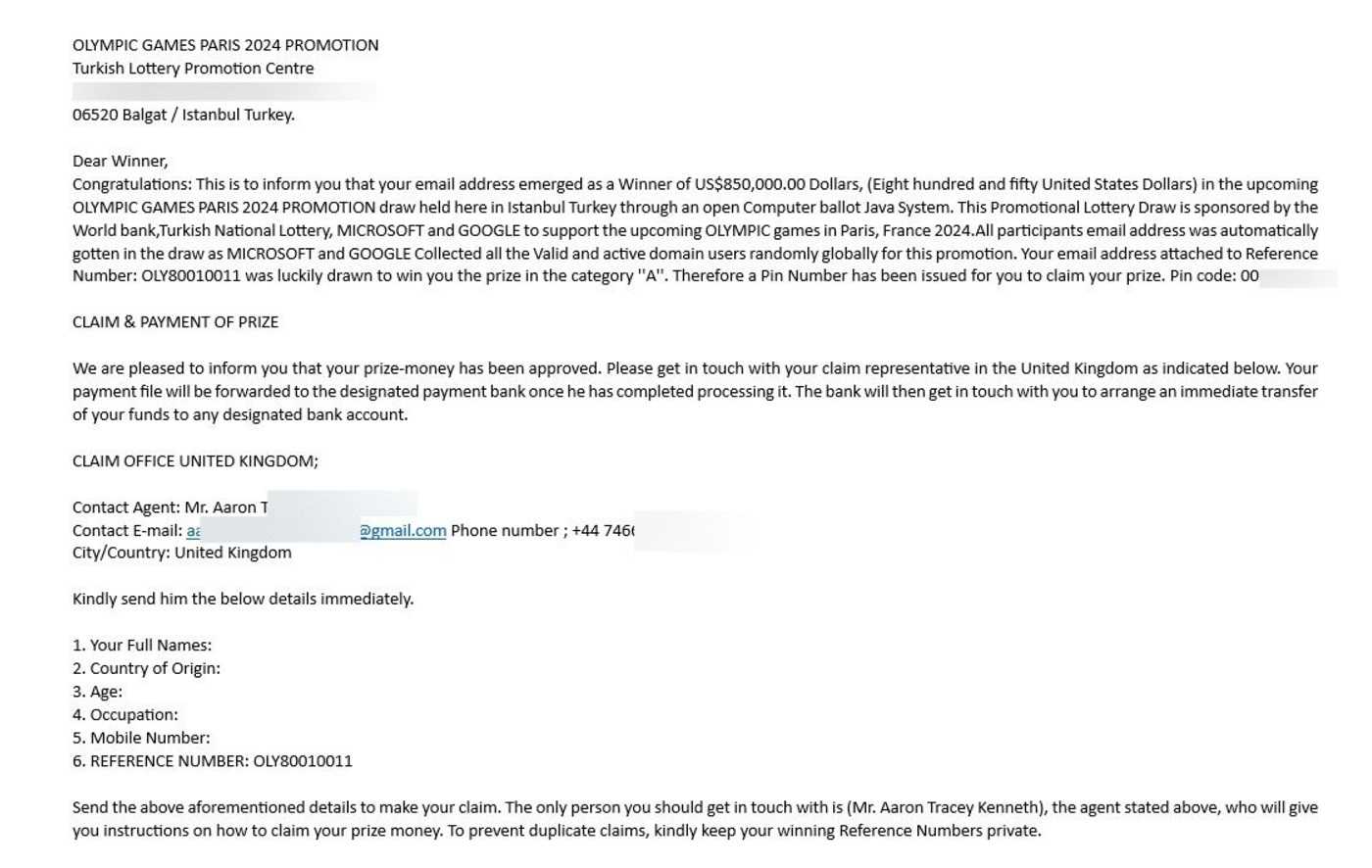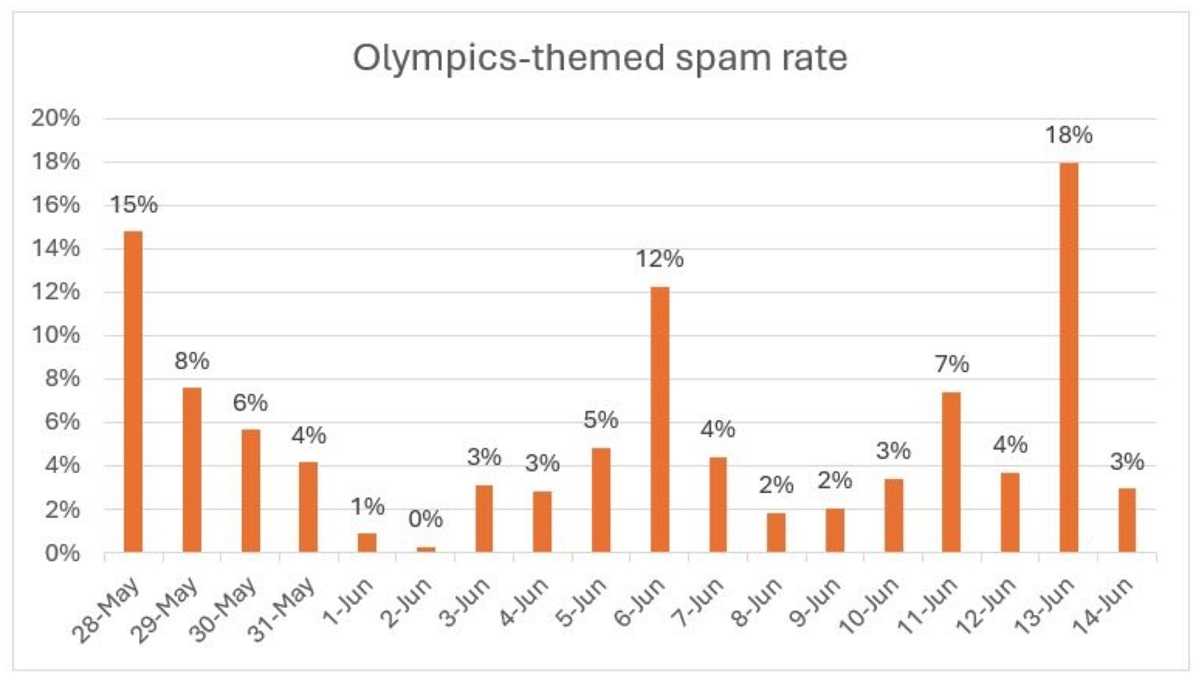The torch will soon arrive in Paris! It’s nearly time again when sports fans and occasional watchers come together to watch in pubs, or plant themselves into their favorite easy chairs to take the opportunity to scream into the television for the worldwide frenzy that is the Olympic Games. It’s likely to be no different this summer when the games take place in Paris. With fans rooting for their favorite athletes and teams to win, cyber attackers are in prime condition seeking out their own potentially winning opportunities.
Olympic officials are warning of a particular scam involving "free" tickets to the opening ceremonies. Supposedly, you can get said tickets for the measly price of postage to send you the tickets.
In this case, officials remind us that they do not send out paper tickets and the only way to get tickets is on the official Paris ticket office, which you can find at the Paris2024 website.
The Olympics aren’t lonely this summer. There were also two major soccer tournaments and of course the annual bike race, the Tour de France. And you can bet on it that there is attempted phishing by cybercriminals trying to take advantage of fans of all of them. Let’s take a look at what you may see.
Phishing Scams, Of Course
It’s the same as usual. Fans looking for last-minute tickets and game swag are prime targets for scammers. Phishing websites that are so real-looking are created and set up specifically to steal all kinds of information from victims. These fake websites promise they have exclusive items that fans would cherish and wear with pride or hard to find items that you can only get on their website. But unfortunately, in these cases, you won't win medals.
What will happen is that the websites re-direct fans to fraudulent sites. Conveniently, there is a payment page also controlled by scammers readily available on these fake websites. Not only do victims not receive what they paid for, if they receive anything at all, but the price tag might be more than the cost of those gold medals.
Here is an example of a phishing email that saw good success:

Stolen Credit Cards
It’s unlikely that a cybercriminal will turn down the opportunity to sell payment card information for the win. Some sell stolen card details en masse on the dark web. It’s believed some gangs exploit bogus tournament-themed websites to steal payment card details from trusting users. The hackers may us the cards to purchase flights and hotel rooms or might just sell them off to someone else who may do the same thing.
Cryptocurrency Scams
Back in 2022, during the World Cup, there were two official FIFA sponsors that promoted soccer-related NFTs. Those were legitimate. However, scams involving NFTs and cryptocurrency in general are on the rise.
Norton has reported many imposter scams related to cryptocurrency where supposed celebrities, sports stars, and even government officials convince people to complete cryptocurrency transactions. These requests may come in emails or texts, and never rule out voice phishing (vishing).
Spam, Spam, and More Spam
Bitdefender has found that spam has already started filling up email inboxes taking advantage of the upcoming Olympics. Some are traditional marketing, but others are scams such as fake giveaways, lotteries, and sweepstakes. They expect the number of these messages to steadily rise racing up to the events.

Try a Zone Defense
- As always, keep a zone of protection against phishing around you and watch for these and others.
- Make sure the websites you visit are official before putting in payment information or other details.
- Double and triple check those URLs. Keep an eye out for numbers used in place of letters or special characters that can easily be mistaken for letters.
- Use extra care when clicking on advertisements that may appear on social media feeds. Many of them are truly out of bounds and may take you to malicious sites.
- If you do make a purchase and even if you get your merchandise, it’s still a great strategy to check your payment card statements often to ensure that number didn’t get stolen. If you do see any offsides charges, contact the financial institution immediately for assistance.
Any significant event, sporting event or even natural disaster will bring in teams of cybercriminals looking for ways to take advantage of trusting users to take the win. Knowing what these threats are can help all of us avoid scams this summer and long after the winners have left the Olympic Village.